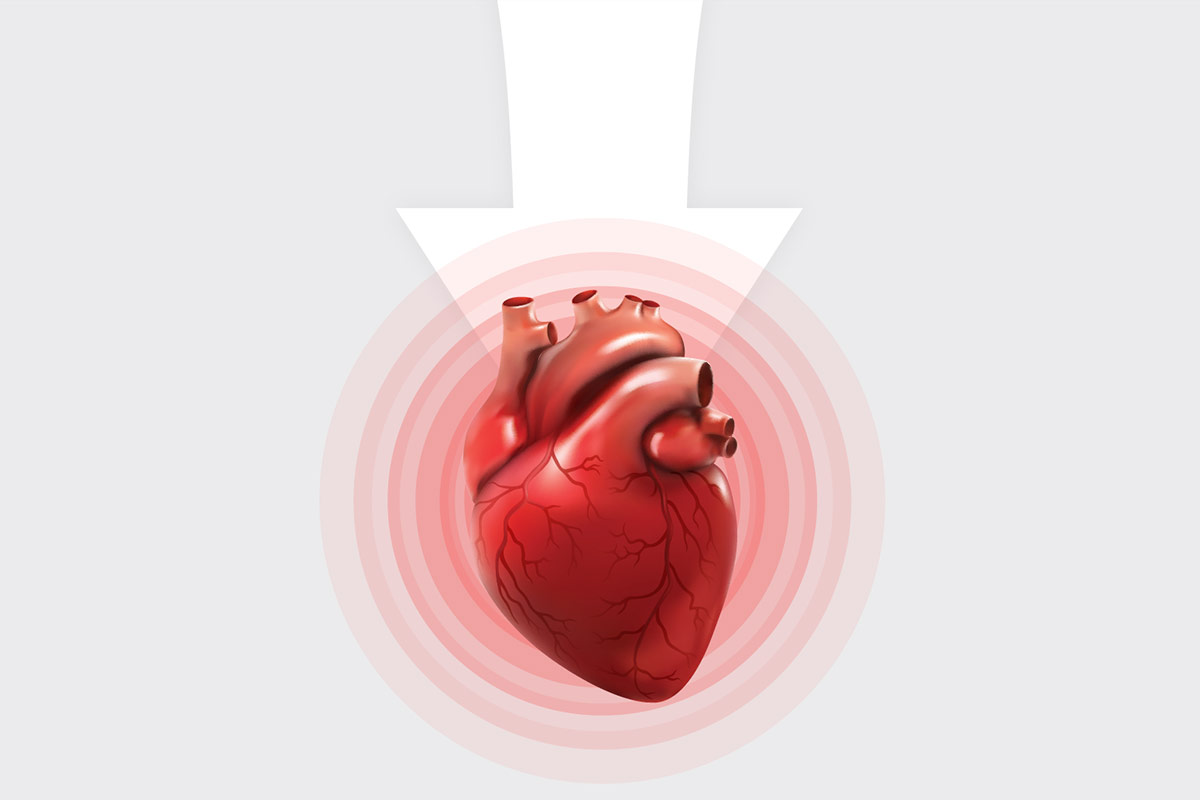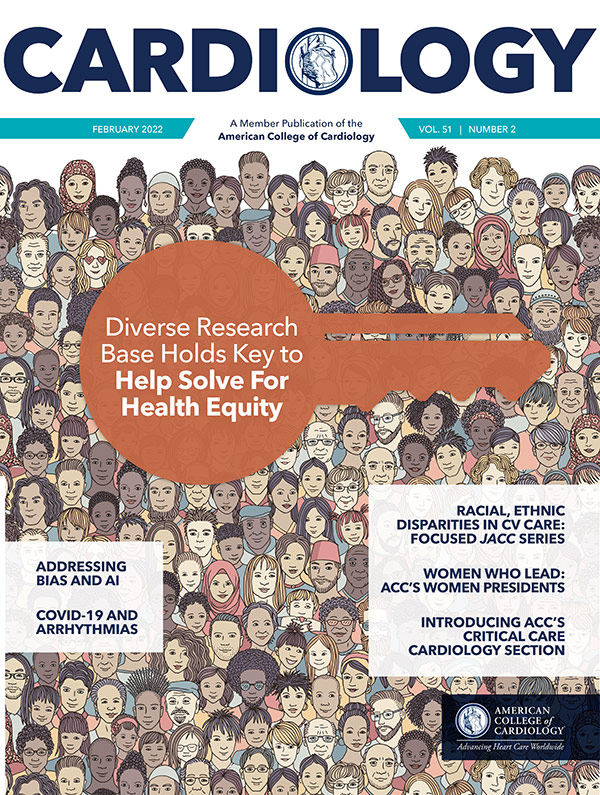For the FITs | Training Pathways For Critical Care Cardiology: The Intersection With Advanced Heart Failure

As the landscape of patients admitted to contemporary cardiac intensive care units (CICU) evolves, the question of who should staff these units and what is the ideal training pathway to become a cardiac critical care physician remains a matter of active debate. A well-described epidemiologic shift towards fewer patients with acute coronary syndromes and more patients with heart failure (HF) has already made the advanced heart failure and transplant cardiology (AHFTC) specialist an indispensable asset to the CICU workforce.
It should come as no surprise, therefore, that many trainees interested in AHFTC are drawn to the overlap with this field and critical care cardiology.1-3 For anyone interested in pursuing formal training at this intersection, the only currently available pathway – sponsored by the American Board of Internal Medicine – requires engaging in an additional dedicated critical care training year on top of AHFTC training, resulting in dual certification. Acknowledging the valuable skillset acquired during cardiology and AHFTC fellowships, an avenue that would allow for tailored training through the AHFTC fellowship pathway leading to a distinction in "advanced heart failure critical care" should be considered and granted to those who meet pre-established requirements.
As a future AHFTC physician, I aspire to care for HF patients across their entire spectrum of disease. As such, I want to develop the tools necessary to care for HF patients, especially during their greatest period of risk and illness. Perhaps unlike others who undergo a specialized critical care cardiology training year because of their broader critical care interest, my priority is to optimize the care and outcomes specifically of critically ill HF patients. To truly optimize outcomes, I strongly believe that patients with HF who are critically ill should be primarily treated by AHFTC specialists or cared for in more specialized HF intensive care units.4
Although a multidisciplinary team for any critically ill individual is paramount, the AHFTC specialist would be the ideal person to orchestrate and lead care delivery. Who better than someone trained in AHFTC to understand the therapeutic alternatives in cardiogenic shock and specific methods for optimization leading to eligibility for advanced HF therapies (i.e., left ventricular assist device and heart transplantation)? With an AHFTC critical care specialist at the helm of care, there would be less misunderstandings and challenges in the management of rejection and its sequelae, troubleshooting of both temporary and durable mechanical circulatory support, etc. Not only could the AHFTC specialist play a crucial role in maximizing outcomes during this period of heightened and critical risk, they would also be best equipped to ensure continuity of care to the outpatient setting. Allowing the AHFTC training year to be enhanced with focused skills in critical care cardiology offers a compelling alternative with a myriad of important benefits to trainees, patients and institutions.
The traditional approach to critical care training presents several potential disadvantages to those particularly interested in AHFTC critical care. Not only does it result in a broader and more general scope of training than what is necessary for AHFTC critical care, but the current approach to training CICU physicians has resulted in a workforce undermined by a growing supply-demand mismatch and limited diversity.5 Based on a study leveraging a comprehensive database of licensed U.S. physicians linked to Medicare claims, it was estimated that no more than 0.47% of all 2014 Medicare CICU admissions were treated by a physician with CICU expertise. Furthermore, less than 5% of current CICU cardiologists are women.5,6 On the flip side, as AHFTC training positions are increasingly going unfilled,7 perhaps creating novel training pathways will serve to attract interested trainees into this wonderful field.
In a perspective piece recently published in in the Journal of Cardiac Failure, my colleagues and I discuss in more detail the liabilities of the traditional training pathway, and instead propose a novel training paradigm that would lead to a "Distinction in Cardiac Critical Care" through AHFTC fellowship.1 We hope this idea can be endorsed and supported by national and international professional societies. Supporting an alternative pathway that leads to "advanced heart failure critical care" physicians could not only help recruit more trainees into this extraordinary field, but will also enrich two workforces, enhance research collaboration and improve diversity.

This article was authored by Vanessa Blumer, MD, a fellow in training in the division of cardiology at Duke University Medical Center and the Duke Clinical Research Institute, in Durham NC.
References
- Carnicelli AP, Blumer V, Genovese L, et al. The road not yet traveled: Distinction in Critical care cardiology through the advanced heart failure and transplant cardiology training pathway. J Card Fail 2021;Nov 4:[Epub ahead of print].
- Miller PE, Kenigsberg BB, Wiley BM. Cardiac critical care: Training pathways and transition to early career. J Am Coll Cardiol 2019;73:1726-30.
- Il'Giovine ZJ, Menon V. The intersection of heart failure and critical care: The contemporary cardiac intensive care unit and the opportunity for a unique training pathway. J Card Fail 2021;27:1152-5.
- Sims DB, Kim Y, Kalininskiy A, et al. Full-time cardiac intensive care unit staffing by heart failure specialists and its association with mortality rates. J Card Fail 2021;S1071-9164(21)00395-X.
- Brusca SB, Barnett C, Barnhart BJ, et al. Role of critical care medicine training in the cardiovascular intensive care unit: survey responses from dual certified critical care cardiologists. J AM Heart Assoc 2019;8:e011721.
- Kasaoka S. Evolved role of the cardiovascular intensive care unit (CICU). J Intensive Care 2017;5:72.
- Chuzi S, Reza N. Cultivating interest in heart failure careers: Can we reverse the current trend?: Cultivating interest in heart failure careers. J Card Fail 2021;27:819-21.
Clinical Topics: Acute Coronary Syndromes, Cardiac Surgery, Cardiovascular Care Team, Heart Failure and Cardiomyopathies, Invasive Cardiovascular Angiography and Intervention, Cardiac Surgery and Heart Failure, Acute Heart Failure, Heart Transplant, Mechanical Circulatory Support, Interventions and ACS
Keywords: ACC Publications, Cardiology Magazine, Fellowships and Scholarships, Critical Illness, Cardiologists, Acute Coronary Syndrome, Heart-Assist Devices, Outpatients, Shock, Cardiogenic, Medicare, Critical Care, Heart Failure, Intensive Care Units, Certification, Cardiology, Heart Transplantation, Patient Care Team, Continuity of Patient Care, Workforce
< Back to Listings

